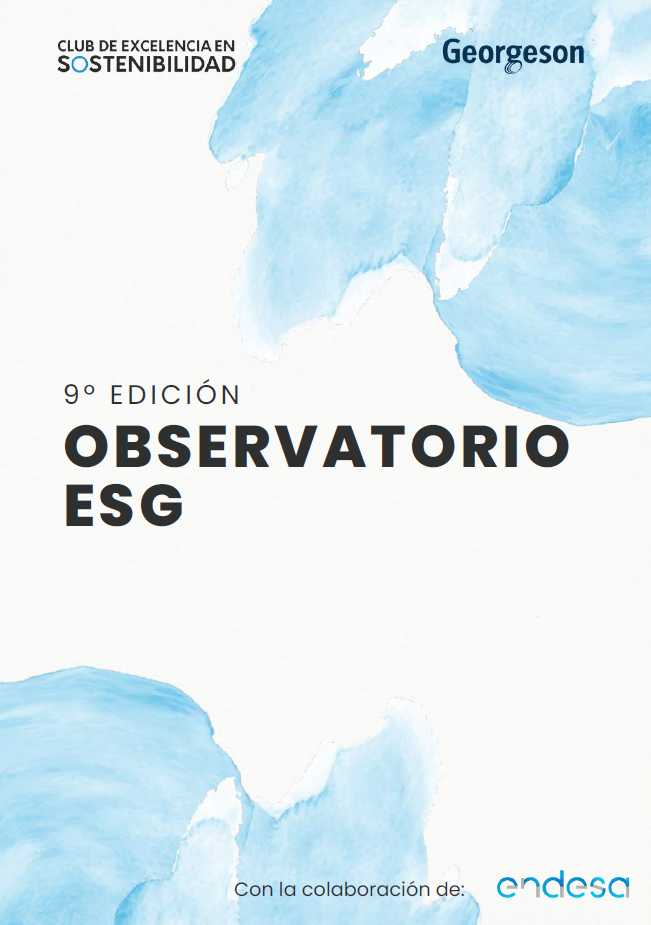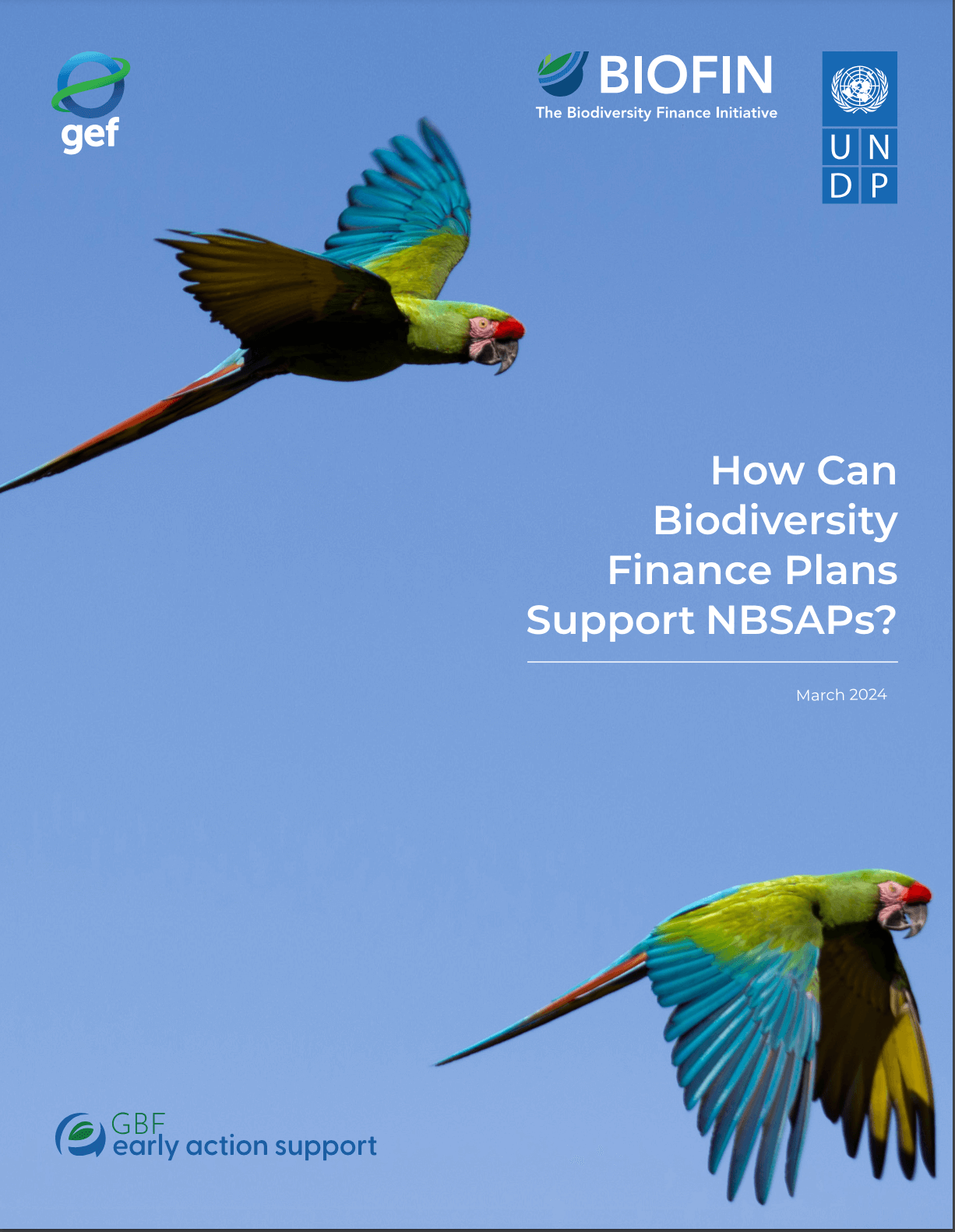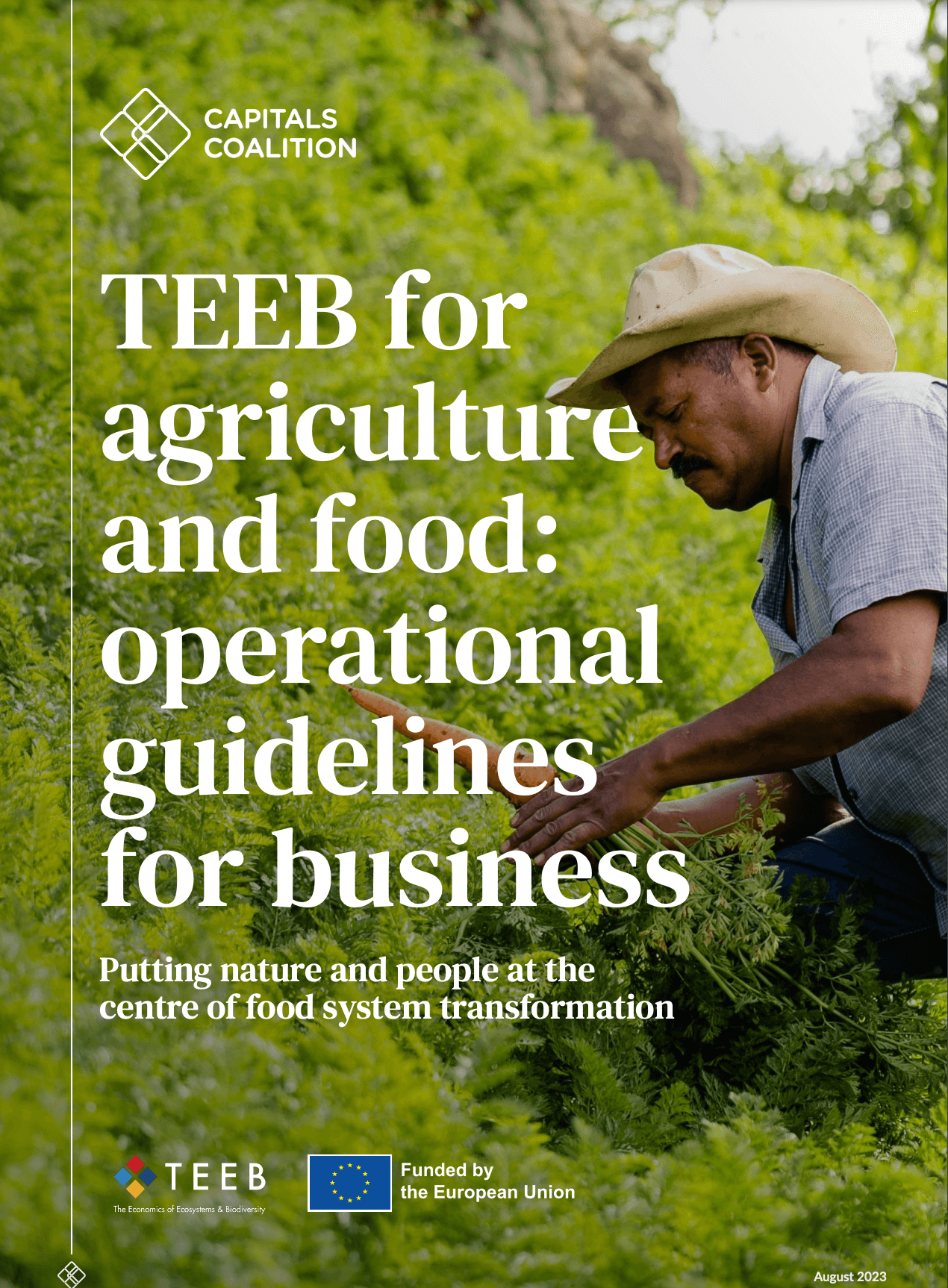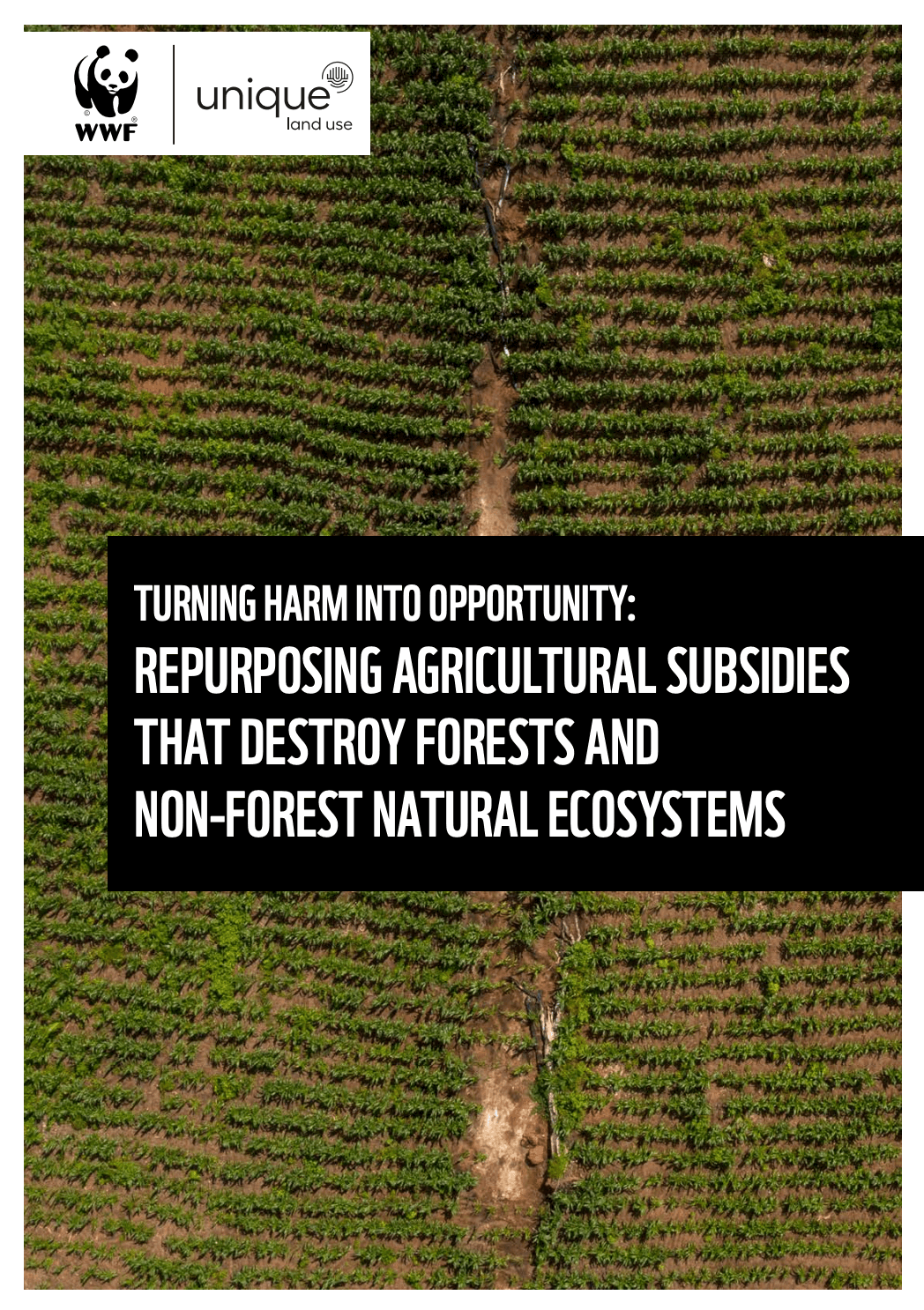Turning harm into opportunity. Repurposing agriculturall subsidies that destroy forests and non-forests natural ecosystemas
Detalles
| Every year, governments spend about $470 billion on agricultural subsidies that harm forests and other natural ecosystems and contribute to biodiversity loss. Around the world, there is increasing attention to the need to repurpose these types of subsidies and create incentives that can have a positive impact on food production and nature conservation, while supporting more sustainable, equitable and just food systems. WWF's report Turning harm into opportunity: Repurposing Agricultural Subsidies that Destroy Forests and Non-Forest Natural Ecosystems examines the impact of subsidies on deforestation and the conversion of non-forest natural ecosystems, building on lessons learned in Brazil and Malawi. The report also provides a framework for assessing the feasibility and impacts of redirecting environmentally harmful agricultural subsidies towards forest conservation, land and forest restoration, and sustainable land-use practices. |
Recursos relacionados

9th Edition of the ESG Observatory
Georgeson and the Club for Excellence in Sustainability present a new edition of the "ESG Observatory", through which the main…

How Can Biodiversity Finance Plans Support NBSAPs?
At the 2022 Conference of the Parties to the Convention on Biological Diversity 15 (CBD COP 15), countries agreed to…

TEEBAgrifood Operational Guidelines for Business
Developed to support companies in implementing the TEEBAgriFood Assessment Framework, the TEEBAgriFood Business Operational Guidelines provide a practical way for…


